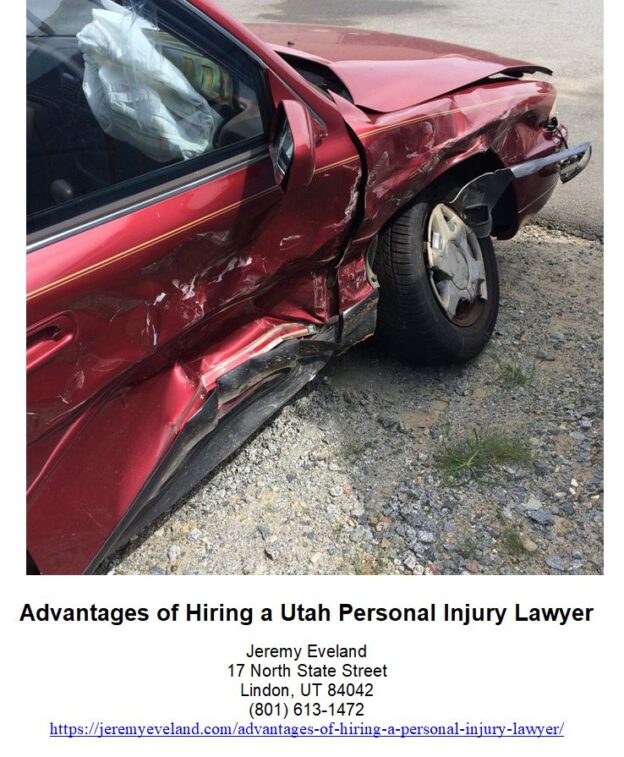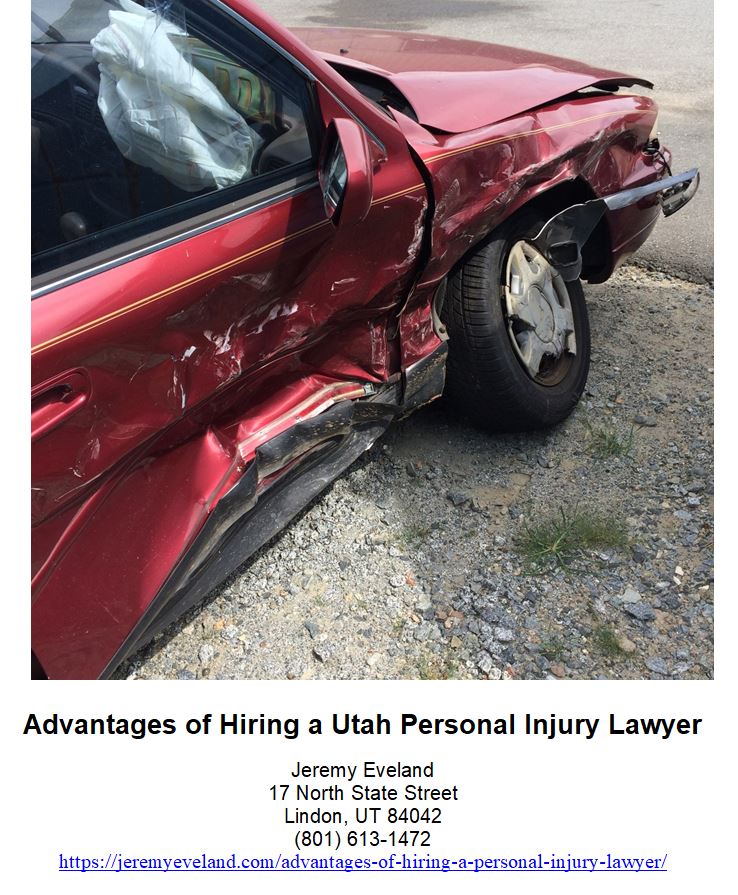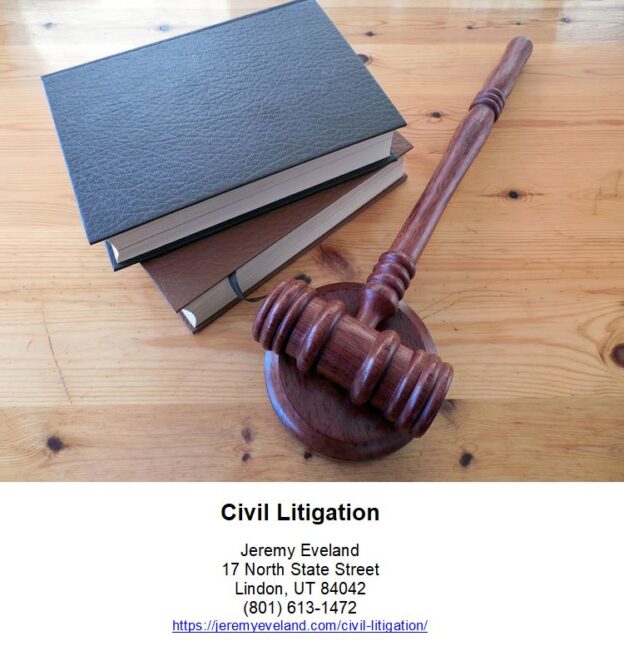-
Estate Planning Lawyer
- Introduction
- Understanding the Flexibility of Disclaimers in Estate Planning: What You Need to Know
- How to Create an Effective Disclaimer Trust for Your Estate Plan
- The Benefits of Marital Disclaimer Trusts in Estate Planning
- How to Use Disclaimers to Maximize Your Estate Tax Exemption
- Understanding Disclaimers in Estate Planning: What You Need to Know
- Why You Need an Estate Planning Lawyer to Assist You With Disclaimers
- Q&A
“Protect Your Legacy with Disclaimers: Secure Your Estate for Future Generations!”
Introduction
Using disclaimers in estate planning is a powerful tool that can help you protect your assets and ensure that your wishes are carried out. A disclaimer is a legal document that allows you to refuse to accept an inheritance or gift. It can be used to protect your assets from creditors, avoid probate, and reduce estate taxes. Disclaimers can also be used to ensure that your estate is distributed according to your wishes. This article will discuss the basics of using disclaimers in estate planning, including when and how to use them.
Understanding the Flexibility of Disclaimers in Estate Planning: What You Need to Know
When it comes to estate planning, understanding the flexibility of disclaimers is essential. Disclaimers are a powerful tool that can be used to protect assets, reduce taxes, and ensure that your wishes are carried out. This article will provide an overview of disclaimers and explain how they can be used in estate planning.
A disclaimer is a legal document that allows a person to refuse to accept an inheritance or other asset. By disclaiming an asset, the person is essentially saying that they do not want to accept the asset and that it should pass to someone else. This can be a useful tool in estate planning, as it allows the person to control who receives the asset and how it is distributed.
Disclaimers can be used in a variety of ways. For example, they can be used to reduce taxes, protect assets from creditors, or ensure that assets are distributed according to the wishes of the deceased. Disclaimers can also be used to protect assets from being taken by the government in the event of a bankruptcy or other financial hardship.
When using disclaimers in estate planning, it is important to understand the rules and regulations that apply. In most cases, disclaimers must be made within nine months of the date of death. Additionally, the disclaimer must be in writing and must be signed by the person making the disclaimer. It is also important to note that disclaimers are irrevocable, meaning that once they are made, they cannot be changed or revoked.
Finally, it is important to understand that disclaimers are not always the best option. In some cases, it may be more beneficial to accept the asset and use it to benefit the estate. It is important to consult with an experienced estate planning attorney to determine the best course of action for your particular situation.
By understanding the flexibility of disclaimers in estate planning, you can ensure that your wishes are carried out and that your assets are protected. With the right guidance, you can make sure that your estate is handled in the most efficient and effective manner possible.
How to Create an Effective Disclaimer Trust for Your Estate Plan
Creating an effective disclaimer trust for your estate plan is an important step in ensuring that your assets are distributed according to your wishes. A disclaimer trust is a type of trust that allows you to transfer assets to a trust without triggering any gift or estate taxes. It is an important tool for estate planning, as it can help you reduce the amount of taxes your estate will owe.
When creating a disclaimer trust, it is important to consider the following:
1. Choose a Trustee: The trustee is the person who will manage the trust and ensure that the assets are distributed according to your wishes. It is important to choose someone who is trustworthy and knowledgeable about estate planning.
2. Draft the Trust Document: The trust document should clearly outline the terms of the trust, including who will receive the assets, when they will receive them, and how they will be distributed. It should also include any restrictions or conditions that you want to place on the trust.
3. Fund the Trust: Once the trust document is drafted, you will need to fund the trust with assets. This can be done by transferring assets from your estate or by making a gift to the trust.
4. File the Necessary Documents: Once the trust is funded, you will need to file the necessary documents with the appropriate government agencies. This includes filing a gift tax return and a disclaimer of interest form.
By following these steps, you can create an effective disclaimer trust for your estate plan. This will help ensure that your assets are distributed according to your wishes and that your estate is not subject to unnecessary taxes.
The Benefits of Marital Disclaimer Trusts in Estate Planning
Marital disclaimer trusts are an important tool in estate planning. They are used to protect assets from estate taxes and to provide for the surviving spouse. This type of trust can be used to provide for the surviving spouse while also protecting the assets from estate taxes.
A marital disclaimer trust is a type of trust that allows a surviving spouse to disclaim, or refuse, an inheritance from their deceased spouse. This allows the surviving spouse to avoid estate taxes on the inheritance. The disclaimed assets are then transferred to a trust, which is managed by a trustee. The trustee is responsible for managing the trust and distributing the assets according to the terms of the trust.
The primary benefit of a marital disclaimer trust is that it allows the surviving spouse to avoid estate taxes on the inheritance. This can be especially beneficial for high-net-worth individuals, as estate taxes can be quite high. Additionally, the trust can be used to provide for the surviving spouse while also protecting the assets from estate taxes.
Another benefit of a marital disclaimer trust is that it can be used to provide for the surviving spouse while also protecting the assets from creditors. This can be especially beneficial for individuals who have a large amount of debt. The trust can be used to protect the assets from creditors while also providing for the surviving spouse.
Finally, a marital disclaimer trust can be used to provide for the surviving spouse while also protecting the assets from estate taxes. This can be especially beneficial for individuals who have a large amount of assets. The trust can be used to protect the assets from estate taxes while also providing for the surviving spouse.
In conclusion, marital disclaimer trusts are an important tool in estate planning. They can be used to provide for the surviving spouse while also protecting the assets from estate taxes. Additionally, they can be used to protect the assets from creditors and to provide for the surviving spouse. For these reasons, marital disclaimer trusts are an important tool in estate planning.
How to Use Disclaimers to Maximize Your Estate Tax Exemption
When it comes to estate planning, one of the most important tools available to maximize your estate tax exemption is the use of disclaimers. A disclaimer is a legal document that allows you to refuse to accept an inheritance or gift. By disclaiming an inheritance or gift, you can reduce the size of your taxable estate and maximize your estate tax exemption.
When considering the use of disclaimers, it is important to understand the rules and regulations that govern them. Generally, a disclaimer must be in writing and must be signed by the person making the disclaimer. The disclaimer must also be made within nine months of the date of death of the person making the gift or bequest. Additionally, the disclaimer must meet certain requirements in order to be valid.
When making a disclaimer, it is important to be aware of the potential tax implications. Depending on the size of the gift or bequest, the disclaimer may result in a taxable event. Therefore, it is important to consult with a qualified tax professional before making a disclaimer.
In addition to the tax implications, it is important to consider the potential legal implications of making a disclaimer. Depending on the state in which you live, there may be certain restrictions on the types of disclaimers that can be made. Therefore, it is important to consult with an experienced estate planning attorney before making a disclaimer.
By understanding the rules and regulations that govern disclaimers, you can maximize your estate tax exemption and ensure that your estate is properly managed. With the help of a qualified tax professional and estate planning attorney, you can make informed decisions about the use of disclaimers and ensure that your estate is managed in the most efficient manner possible.
Understanding Disclaimers in Estate Planning: What You Need to Know
When it comes to estate planning, understanding the importance of disclaimers is essential. Disclaimers are a legal document that allows an individual to refuse to accept an inheritance or gift. This document is important for estate planning because it can help protect the individual from potential tax liabilities and other financial obligations.
When an individual disclaims an inheritance or gift, the property is then passed on to the next beneficiary in line. This can be beneficial for estate planning because it allows the individual to avoid any potential tax liabilities or other financial obligations associated with the inheritance or gift.
When writing a disclaimer, it is important to be aware of the legal requirements in your state. Each state has its own set of laws and regulations regarding disclaimers, so it is important to be aware of these before writing a disclaimer. Additionally, it is important to make sure that the disclaimer is properly executed and witnessed.
When writing a disclaimer, it is important to be clear and concise. The document should clearly state the individual’s intention to disclaim the inheritance or gift and should include the date of the disclaimer. Additionally, the document should include the name of the beneficiary who will receive the property in the event of a disclaimer.
It is also important to keep in mind that a disclaimer is irrevocable. Once the document is signed, it cannot be changed or revoked. Therefore, it is important to make sure that the individual is certain of their decision before signing the document.
Understanding disclaimers in estate planning is essential for anyone who is considering writing a disclaimer. By understanding the legal requirements and making sure that the document is properly executed and witnessed, individuals can ensure that their estate planning is properly taken care of.
Why You Need an Estate Planning Lawyer to Assist You With Disclaimers
Estate planning is an important process that helps individuals and families protect their assets and plan for the future. An estate planning lawyer can provide invaluable assistance in this process, particularly when it comes to creating disclaimers. A disclaimer is a legal document that states that the person signing it does not have any legal rights or obligations related to the property or assets in question.
Creating a valid disclaimer requires a thorough understanding of the law and the ability to draft a document that meets all legal requirements. An estate planning lawyer can provide the necessary expertise to ensure that the disclaimer is legally binding and enforceable.
In addition to drafting a valid disclaimer, an estate planning lawyer can also provide advice on how to best use the disclaimer to protect the interests of the person signing it. For example, a lawyer can advise on the best way to structure the disclaimer to ensure that it is effective in protecting the signer’s assets.
An estate planning lawyer can also provide advice on how to use disclaimers to minimize taxes and other liabilities. For example, a lawyer can advise on the best way to structure a disclaimer to minimize the tax burden on the signer’s estate.
Finally, an estate planning lawyer can provide advice on how to use disclaimers to protect the interests of beneficiaries. For example, a lawyer can advise on the best way to structure a disclaimer to ensure that the signer’s assets are distributed according to their wishes.
In summary, an estate planning lawyer can provide invaluable assistance in creating and using disclaimers. A lawyer can provide the necessary expertise to ensure that the disclaimer is legally binding and enforceable, as well as provide advice on how to best use the disclaimer to protect the interests of the signer and their beneficiaries.
Q&A
1. What is a Disclaimer?
A disclaimer is a legal document that allows a person to refuse to accept an inheritance or other benefit. It is a way for a person to renounce their right to receive something without having to go through the probate process.
2. When should a Disclaimer be used?
A disclaimer should be used when a person does not want to accept an inheritance or other benefit. It can also be used to avoid certain taxes or to protect assets from creditors.
3. What are the benefits of using a Disclaimer?
Using a disclaimer can help to avoid probate, reduce taxes, and protect assets from creditors. It can also be used to ensure that the assets are distributed according to the wishes of the deceased.
4. What are the risks of using a Disclaimer?
The main risk of using a disclaimer is that it may not be legally binding. It is important to consult with an attorney to ensure that the disclaimer is valid and enforceable.
5. What should be included in a Disclaimer?
A disclaimer should include the name of the person making the disclaimer, the date of the disclaimer, a description of the property or benefit being disclaimed, and a statement that the person is voluntarily disclaiming the property or benefit.
6. Who should prepare a Disclaimer?
A disclaimer should be prepared by an attorney who is familiar with estate planning and the laws in the state where the disclaimer is being made.
Areas We Serve
We serve individuals and businesses in the following locations:
Salt Lake City Utah
West Valley City Utah
Provo Utah
West Jordan Utah
Orem Utah
Sandy Utah
Ogden Utah
St. George Utah
Layton Utah
South Jordan Utah
Lehi Utah
Millcreek Utah
Taylorsville Utah
Logan Utah
Murray Utah
Draper Utah
Bountiful Utah
Riverton Utah
Herriman Utah
Spanish Fork Utah
Roy Utah
Pleasant Grove Utah
Kearns Utah
Tooele Utah
Cottonwood Heights Utah
Midvale Utah
Springville Utah
Eagle Mountain Utah
Cedar City Utah
Kaysville Utah
Clearfield Utah
Holladay Utah
American Fork Utah
Syracuse Utah
Saratoga Springs Utah
Magna Utah
Washington Utah
South Salt Lake Utah
Farmington Utah
Clinton Utah
North Salt Lake Utah
Payson Utah
North Ogden Utah
Brigham City Utah
Highland Utah
Centerville Utah
Hurricane Utah
South Ogden Utah
Heber Utah
West Haven Utah
Bluffdale Utah
Santaquin Utah
Smithfield Utah
Woods Cross Utah
Grantsville Utah
Lindon Utah
North Logan Utah
West Point Utah
Vernal Utah
Alpine Utah
Cedar Hills Utah
Pleasant View Utah
Mapleton Utah
Stansbury Par Utah
Washington Terrace Utah
Riverdale Utah
Hooper Utah
Tremonton Utah
Ivins Utah
Park City Utah
Price Utah
Hyrum Utah
Summit Park Utah
Salem Utah
Richfield Utah
Santa Clara Utah
Providence Utah
South Weber Utah
Vineyard Utah
Ephraim Utah
Roosevelt Utah
Farr West Utah
Plain City Utah
Nibley Utah
Enoch Utah
Harrisville Utah
Snyderville Utah
Fruit Heights Utah
Nephi Utah
White City Utah
West Bountiful Utah
Sunset Utah
Moab Utah
Midway Utah
Perry Utah
Kanab Utah
Hyde Park Utah
Silver Summit Utah
La Verkin Utah
Morgan Utah
Using Disclaimers In Estate Planning Consultation
When you need help with Using Disclaimers In Estate Planning call Jeremy D. Eveland, MBA, JD (801) 613-1472 for a consultation.
Jeremy Eveland
17 North State Street
Lindon UT 84042
(801) 613-1472
Related Posts
Business Succession Lawyer Eagle Mountain Utah
Estate Planning Lawyer West Jordan Utah
Business Acquisition Lawyer Sandy Utah
Estate Planning Lawyer Orem Utah
Legal Requirements To Form A Trust
Charitable Estate Planning Trusts


















